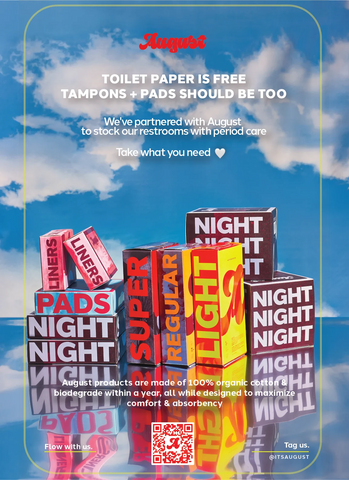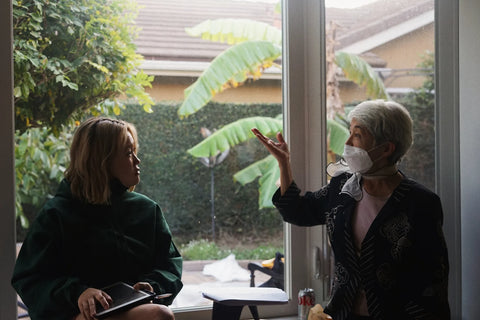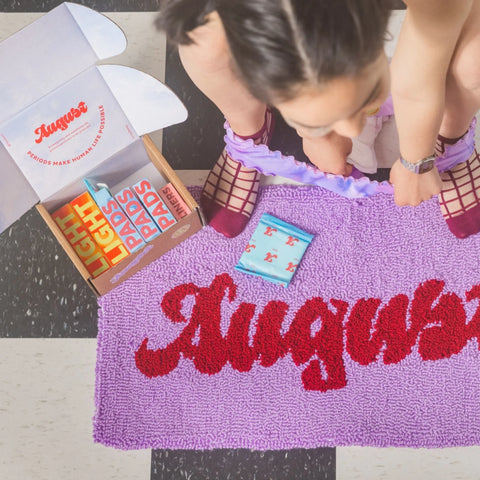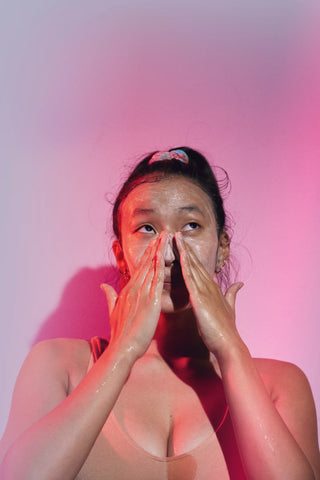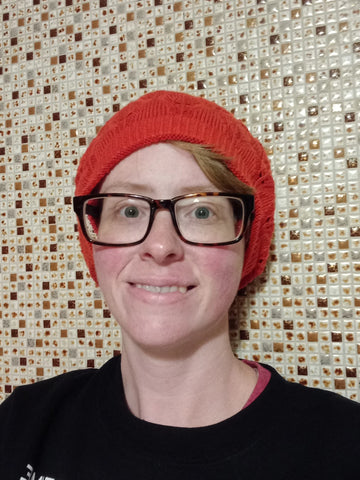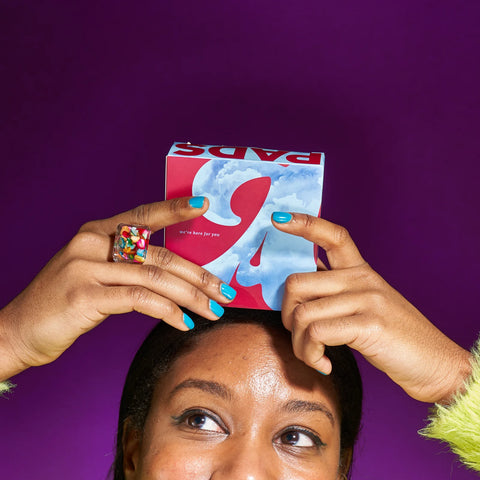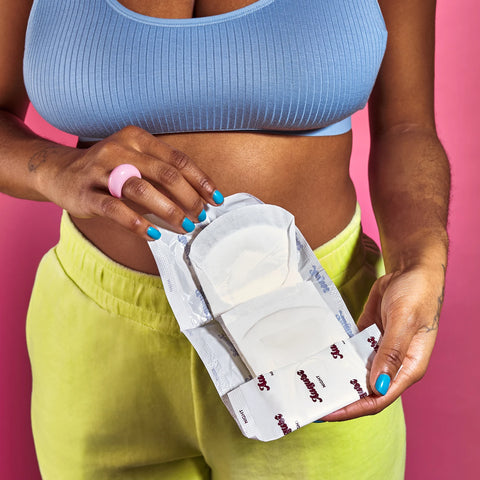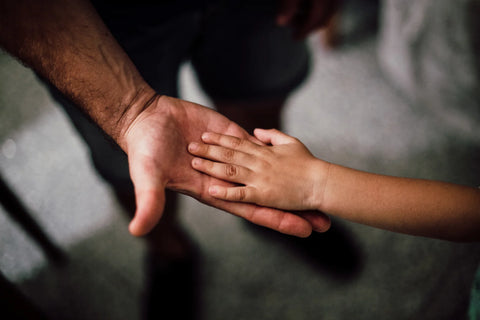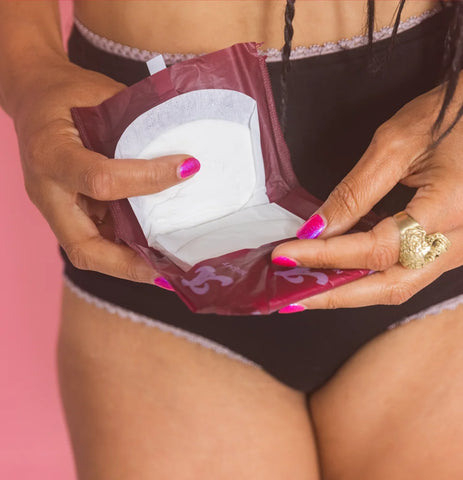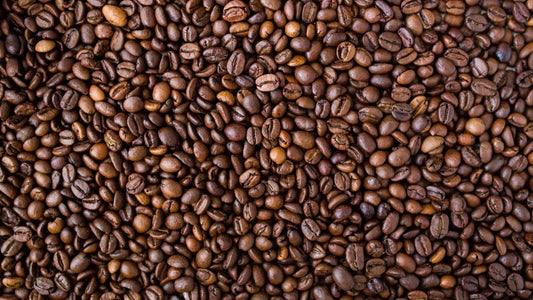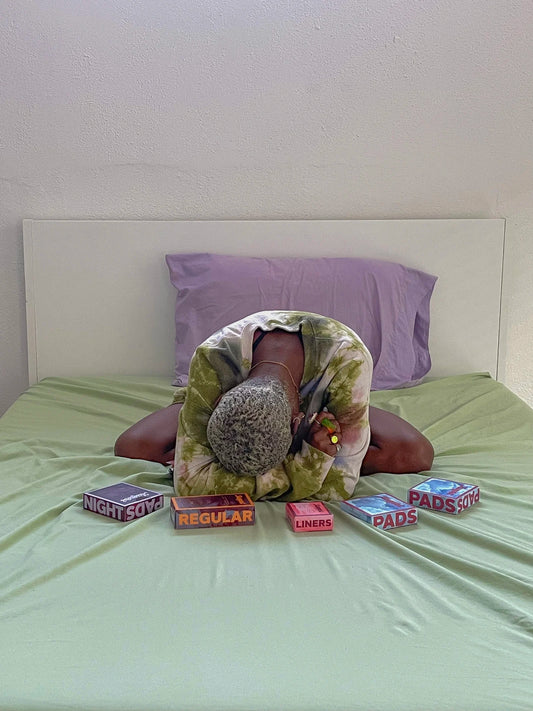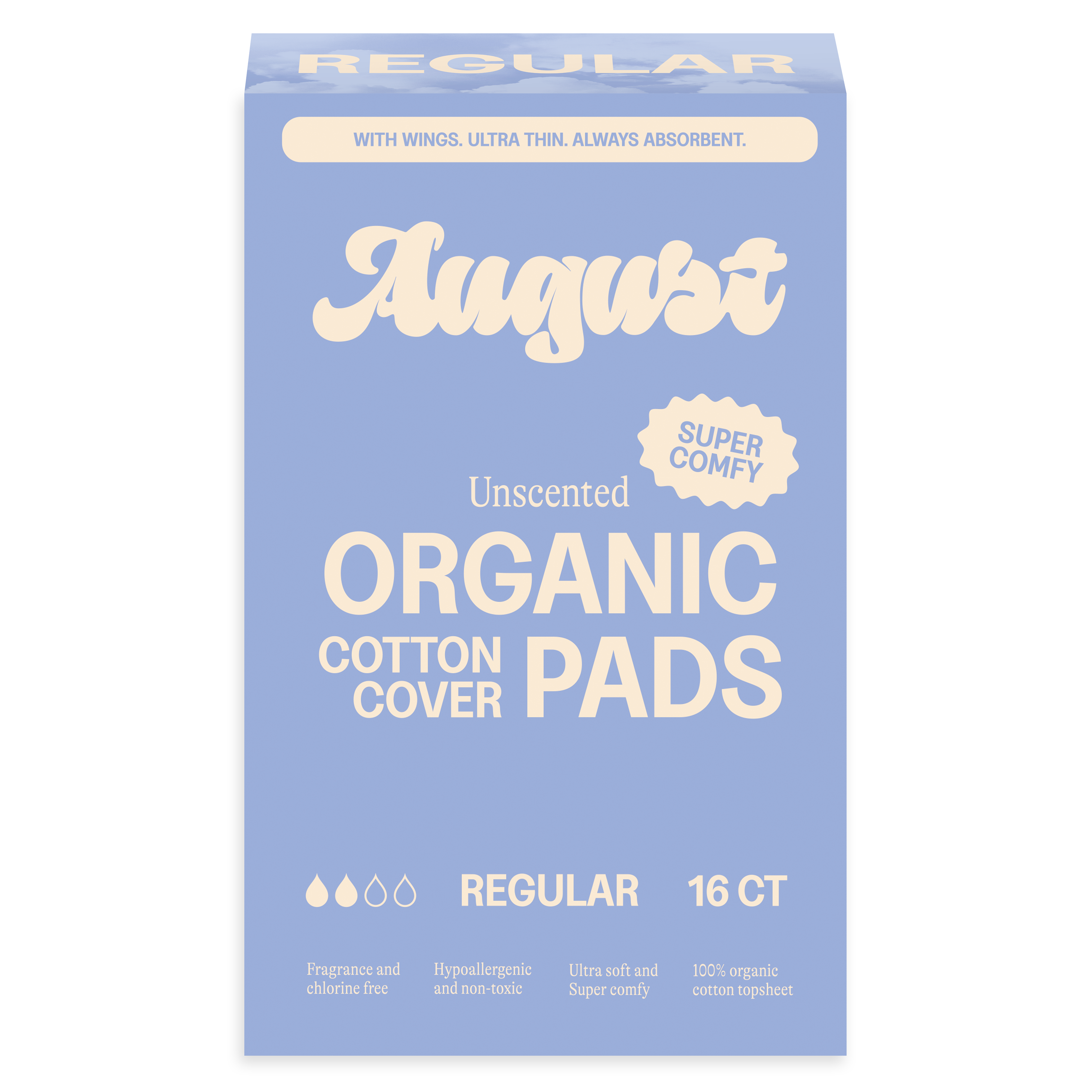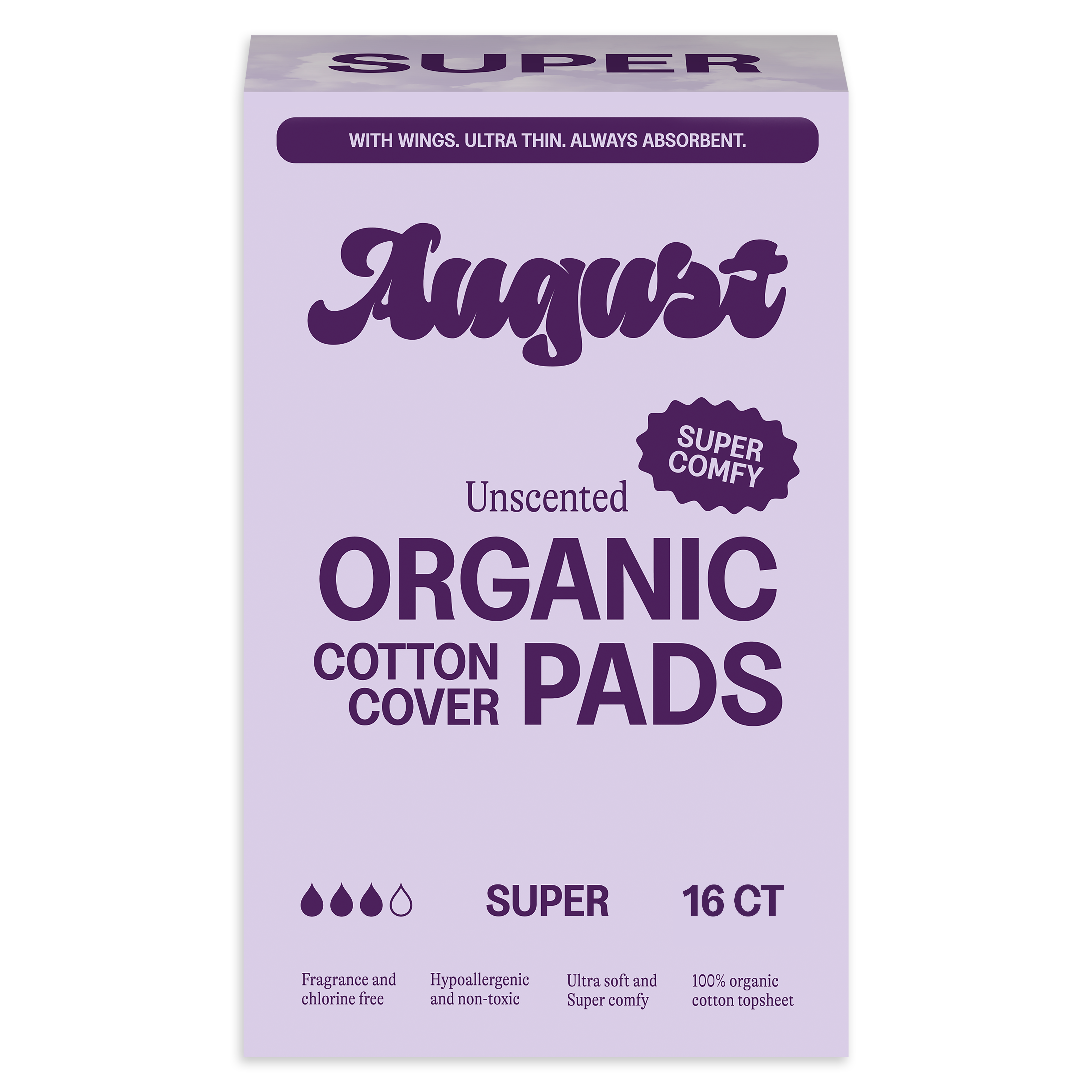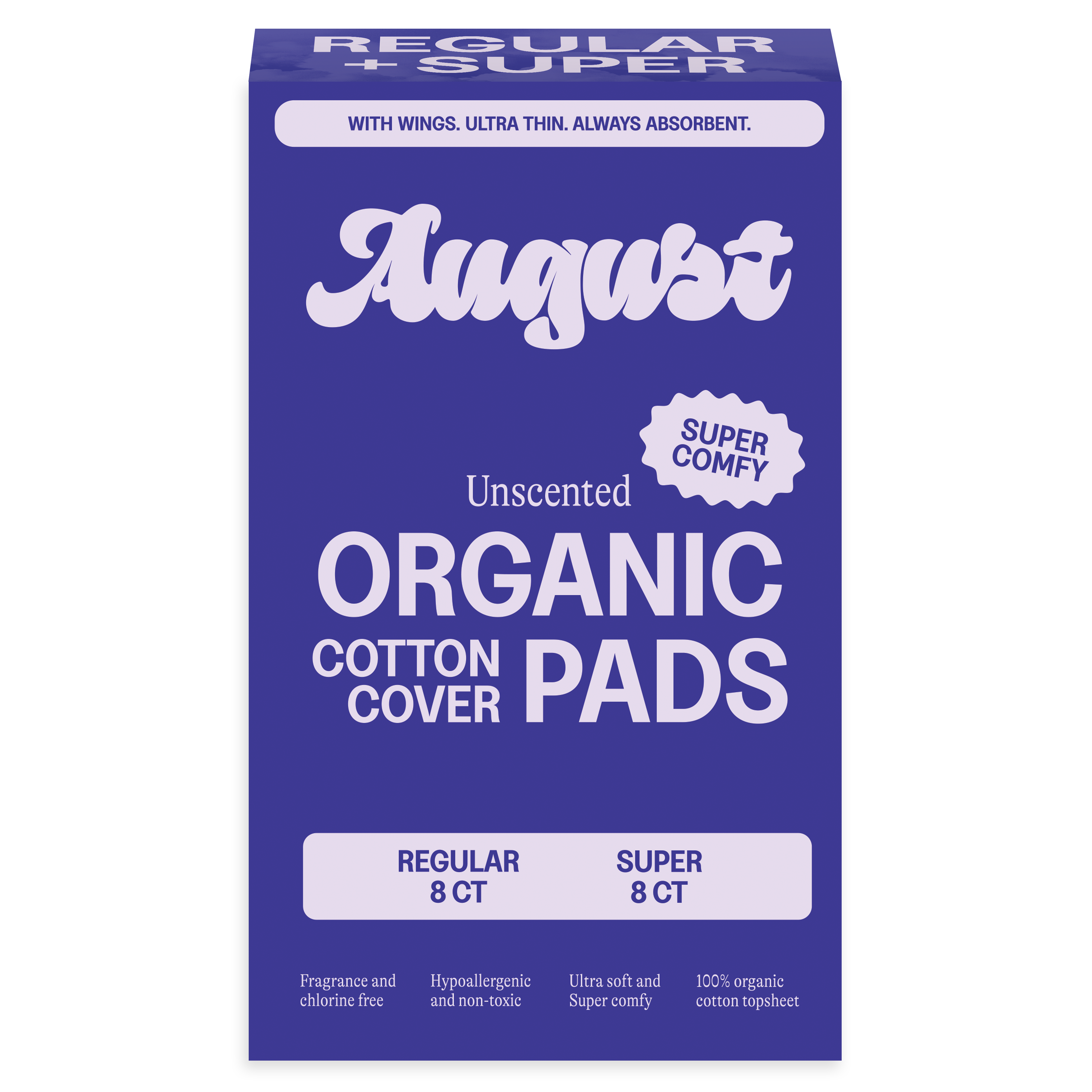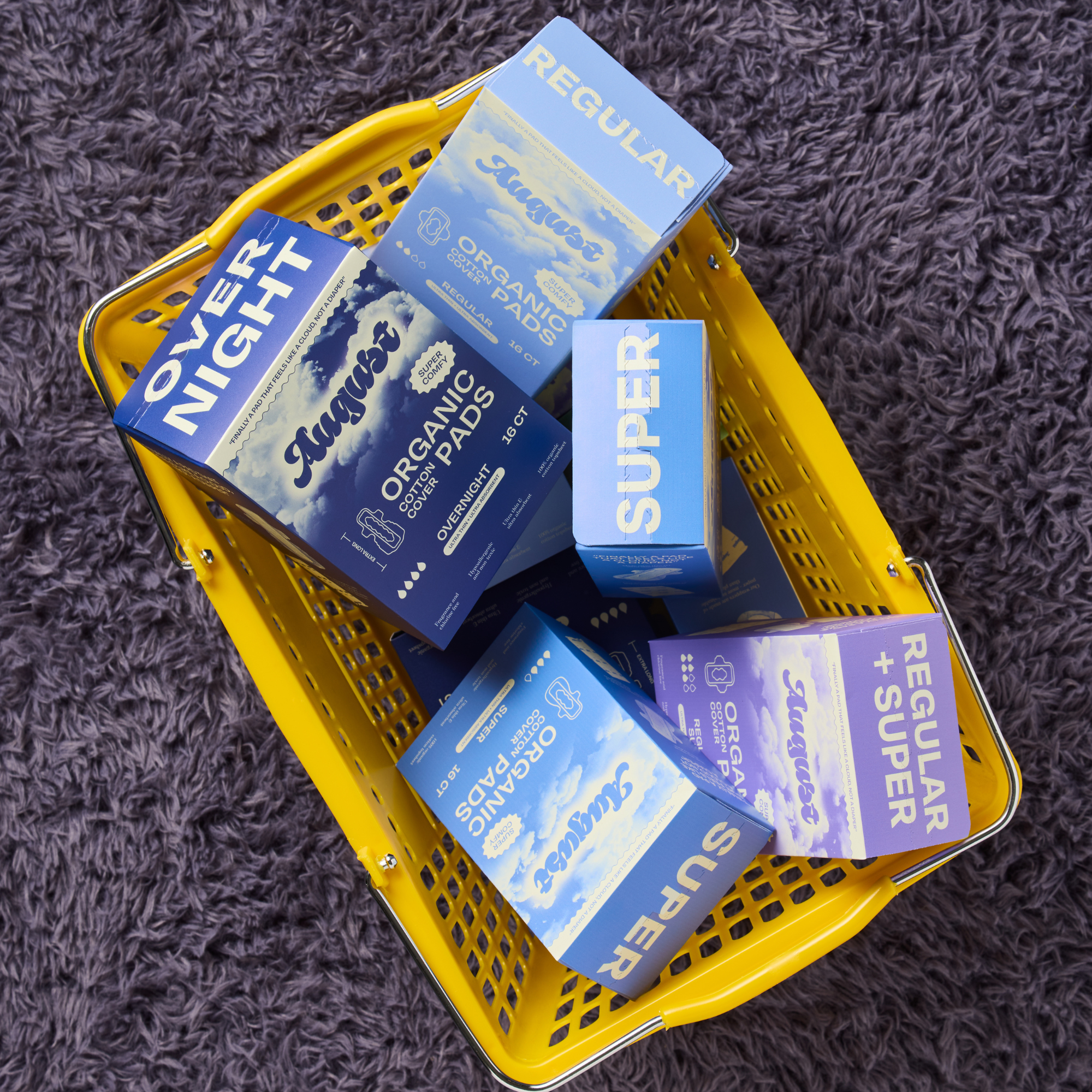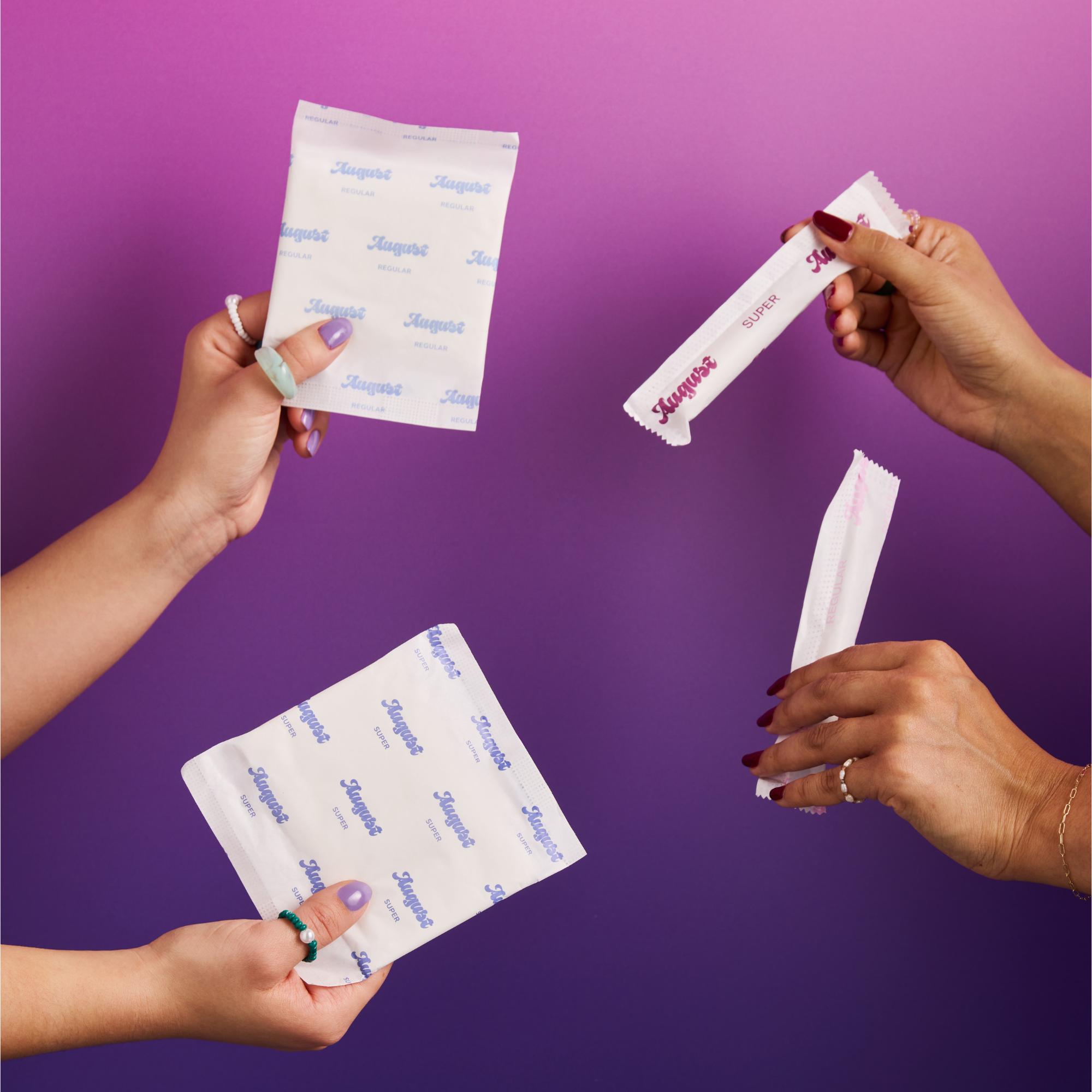
PMDD Awareness Month
April is PMDD Awareness Month. To really get the conversation started, we thought who better to ask than our Inner Cycle community?! We asked them each a few questions about when they found out about PMDD and how they manage their symptoms. Keep reading for advice to younger menstruators who might also have PMDD…Adriana Juárez (she/her), who’d like to highlight IAPMD is a 3rd year MA student in Canada and joined the August fam while searching for more sustainable menstrual products!

Her first period was at age 9 on “Canada Day [aka July 1st] to be exact!” but it wasn't until high school that she started researching PMDD.
“I have always had severe anxiety and suffered from bouts of depression, which always worsened two weeks before my period, along with the (often severe) physical pain that comes with PMS. I ended up googling “depressed before period” and read articles and watched YouTube videos on PMDD. I started taking antidepressants about two years ago for my general mental health, and found that I was suddenly not struggling as much before my periods, and I spoke to the doctor about it, and he read articles on PMDD/PME and increased my dosage to help better support my mental well-being.”
She explained that PMDD causes a lot of crying, lack of motivation to do day-to-day tasks, and therefore a bit of a failure. (Which, BTW, Adriana you are SO NOT. It is more than okay to rest and take a step back on days like this). She told us, “I also get very irritated, which has caused me to make decisions that I regret, such as causing a fight or argument.”
Her symptom management is by way of antidepressants and open conversations to friends & family about how she’s really feeling. She adds on that, “for the more physical symptoms (such as nausea) I seriously stock up on sparkling water! It really helps.”
There is still little research on PMDD and PME (which is basically premenstrual exacerbation - worsening of already existing mental illness) so it definitely is hard for doctors to differentiate, but I have been fortunate to receive care.”
Emilia (she/they) is a tiktok bestie of August.
They were comforted by August’s CEO, Nadya, being utterly unapologetic about period-talk and reflected on their own mother being rather shy about it all. Apparently they didn’t know about periods until age 14/15 so they LOVE August’s educational, stigma-free approach to periods!
After her first period at age 11, Emilia was pretty secretive about her period until she got a bit more comfortable with her body and downloaded a period tracking app. She then noticed the symptoms of PMDD were spot on to what she had been experiencing over the last 3 years. Her symptoms are: sore breasts before and after, period acne, insomnia, bloating, slight weight gain, and I always feel irate on her period.
Emilia is a fulltime student but when they’re on their period, they tend to stay up all night and sleep in. Having PMDD switches up their mood and causes body dysmorphia. Although they don’t have an exact treatment plan, they tend to lean on their weighted blanket, heating pads, warm baths, and give in to their cravings, "because I know and appreciate how my body is working for me."
Alyssa Kissel (she/her) is 24 now but even after 13 years of having a period, only just learned about PMDD a few months ago.

She explained that, “I’ve always had bad periods, but the last few years have been unbearable. I become weepy and depressed, and experience horrible cramping that could only be helped with 4-5 Advils a day.”
Alyssa said that her PMDD symptoms really only kick into high speed the week before her period. She’s currently on birth control specifically made to target PMDD. She says even though it’s only been 4 months, and understands that BC isn’t for everyone, “it’s been amazing for me…and I’ve already seen a huge difference in my mood and pain level.”
Laur (she/they) says they were looking for more eco-friendly period products when they found a news article about August! They got their period at age 12 and their sister sweetly taught them how to use a pad (aw!!)

Laur came to the conclusion that she has PMDD in addition to depression, which is amplified by 10 the week before her period. Their symptoms include more intrusive thoughts, very bad cramps, back aches, and extreme breast tenderness. Luckily, they were already in therapy and speaking to a psychiatrist who had them on 10mg of an SSRI (antidepressant), but with the PMDD realization, the dosage was upped to 20mg.
Laur described how PMDD x depression makes her want to crawl back to bed some days and sometimes the physical pain gets bad enough to take over-the-counter pain killers. She explains that managing the symptoms is a work in progress but speaking up about the pain has helped her and is always worth it.
Elaina Roher (she/her) found the Inner Cycle fam through a friend (love to hear it!!). She got her period in December of Grade 7 but only got diagnosed with PMDD at age 21.

2 years before learning about PMDD Elaina was actually diagnosed with anxiety & depression and noticed that her period would get really bad around her period. Alyssa said, “I started tracking my emotions & thoughts with a therapist & general doctor. My already dramatic highs & lows of depression were MUCH more pronounced right before I started my period.”
Similar to Alyssa, Elaina credits birth control with helping to manage her symptoms, in addition to a daily antidepressant. Therapy, and cycle tracking are also big parts of her PMDD routine now. She explained that BC & antidepressants help with the symptoms but she needs a, “licensed professional to help walk [her] through [her] thoughts & emotions so they don’t take total control of [her] life.”
Anna Rose (she/they) is a disabled individual living with PMDD and endometriosis (among other conditions)! They joined the Inner Cycle last summer through tiktok and immediately felt supported and SEEN.

Anna Rose got her period in English class in Grade 12 – she was excited to get her period but at first she thought she’d peed herself (lol!). Her journey to diagnosis started in 2019 as she entered high school, and her life felt like it went from 1 to 1000 in terms of intensity. Anna Rose explained to us that bodily functions were a taboo topic in her family, and this really took a hold on her reproductive health. She didn’t realize that most people don’t go through 5 pads an hour, fainting several times a day while on their period, and then months and months without any flow at all…
Eventually, a visit to the OB/GYN, an ultrasound, and 3 panels later led to an Endo & PMDD diagnosis. Learning about both of these disorders meant noticing more signs & symptoms like, being severely depressed the week before their period, lack of sleep & appetite, anger & sadness and the worst part: "feeling helplessly out of control."
Anna Rose doesn’t feel like they can fully manage the symptoms that they experience but a specific type of birth control (slynd), regular antidepressants and anxiety medication when needed has made life manageable when they experience a flare.
The overwhelming advice given by these 6 menstruators who have PMDD is to talk about how you’re really feeling.

“Don’t ever feel like a burden, you are not insane, and things will get better.” -Adriana
“Talk about it!!!! Ask your doctor and make sure you’re HEARD. Be your own advocate.” -Alyssa
Elaina suggests really tracking how you feel and to remember that “to keep track, you have to feel your feelings.”
“Seek help, you are not alone! It does get better.” says Laur
“People don’t realize how much periods affect us. I would like for people to mention it more often since sex ed or even parents often don’t inform enough on this topic.” - Emilia
“There's nothing you did wrong to have this disorder. It's such a unique experience and you deserve to honor your body, even if it doesn't always serve you in the "correct" or "right" ways. Listen to that body of yours and know that it's your home in this life. Decorate your home, grow it, allow it to change as it needs” - Anna Rose
Anna Rose hopes that one day PMDD can be taught and embraced by family, friends and school communities. Adriana added that more research and understanding by doctors and other experts is SO necessary and important to better the overall experience for a lot of people. We couldn’t agree more which is why we have collaborated with a handful of August Medical Board advisors to put together a PMDD 101 article coming out at the end of the month! Stay tuned and don’t forget that you can always Ask August.



